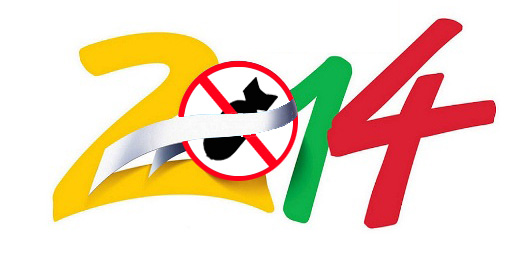The two countries lead FundiPau’s classification of the countries participants in the World Cup 2014 most committed to disarmament and arms control
These weeks, the World Cup occupies a prominent place in the media and the social networks, and captures the attention of many supporters all over the world. On Monday 13th, we’ll know which national team can be considered as the best of the world in football terms.
But the governments of the countries that have participated in this World Cup can also be classified depending on other parameters that doesn’t depend on the sport expertise of the players, their physical training or on random, but on the political decisions that are taken in a conscious way.
In FundiPau we have classified the countries participants in Brazil 20104 depending on their position concerning the more relevant disarmament and control arms treaties. And the winners are Costa Rica and Mexico.
This success goes far beyond an ephemeral recognition of a good sports result and demonstrates a commitment with global security that, finally, makes possible that people of all the countries win.
The United States and Russia, are the two worst classified in the World Cup for Disarmament 2014.
In FundiPau we are convinced that we must work to make all the countries, whether they participate or not in the next World Cup, play and win the World Cup of Disarmament. This is one of the main objectives of our work.
Information about the leaderboard:
To make this classification we have taken into account if the countries participants in the World Cup 2014 have signed or not, and ratified or not, the following treaties on disarmament and arms control currently in force.
Green indicates the countries that have signed and ratified the text, Orange the countries that have only signed it, and Red the countries that haven’t signed it.
In the case of nuclear weapons, green indicates the countries that are for their elimination, red indicates the countries that are against their elimination, and grey indicates the countries that haven’t stated on the subject.
Sources consulted:
1972: Biological and Toxin Weapons Convention (BTWC)
1993: Chemical Weapons Convention (CWC)
1997: Convention on the Prohibition of the Use, Stockpiling, Production and Transfer of Anti-Personnel Mines and on their Destruction (APM Convention)
2008 Convention on Cluster Munitions
2013 Arms Trade Treaty
International Campaign to Abolish Nuclear Weapons (ICAN)




